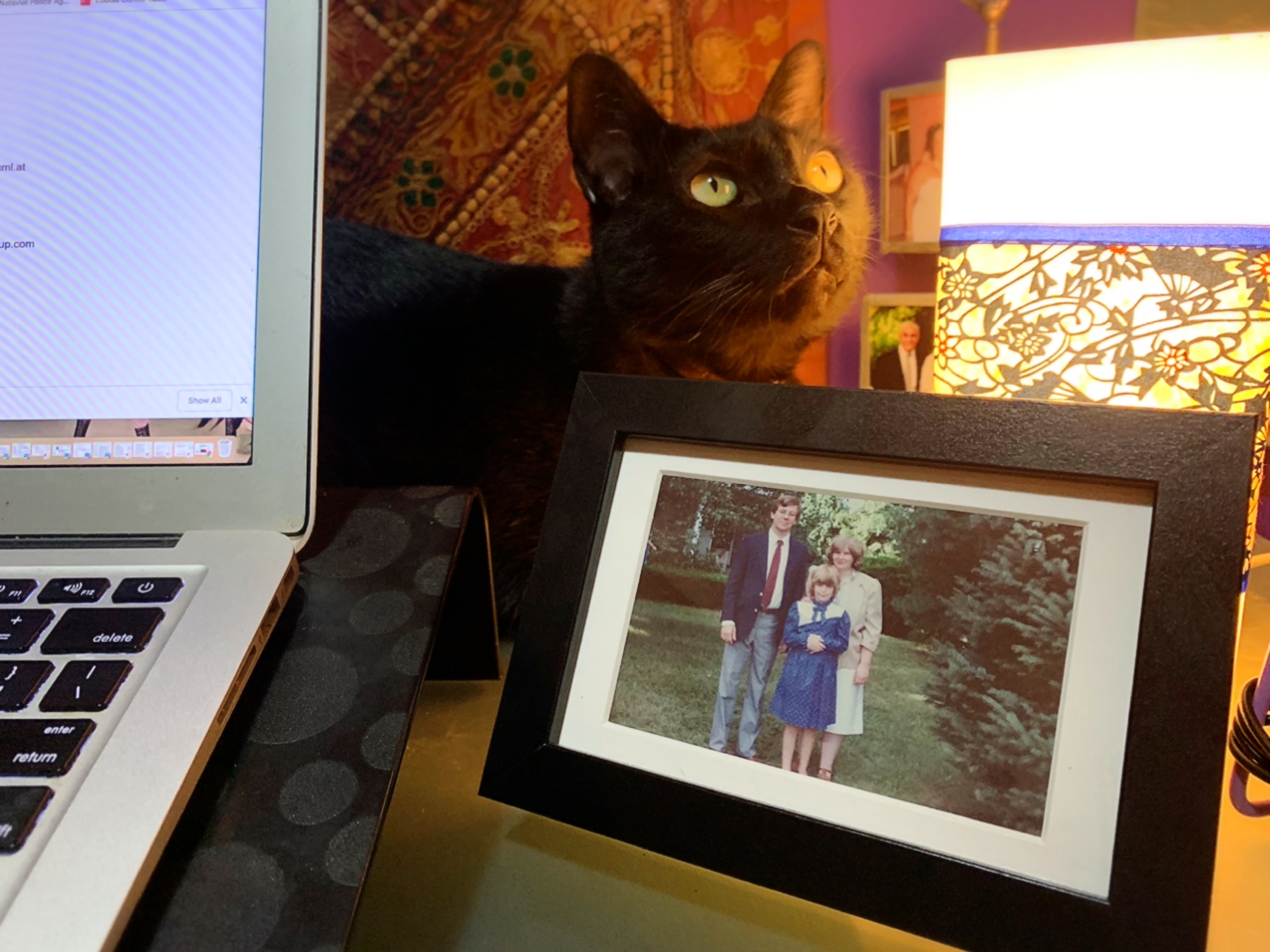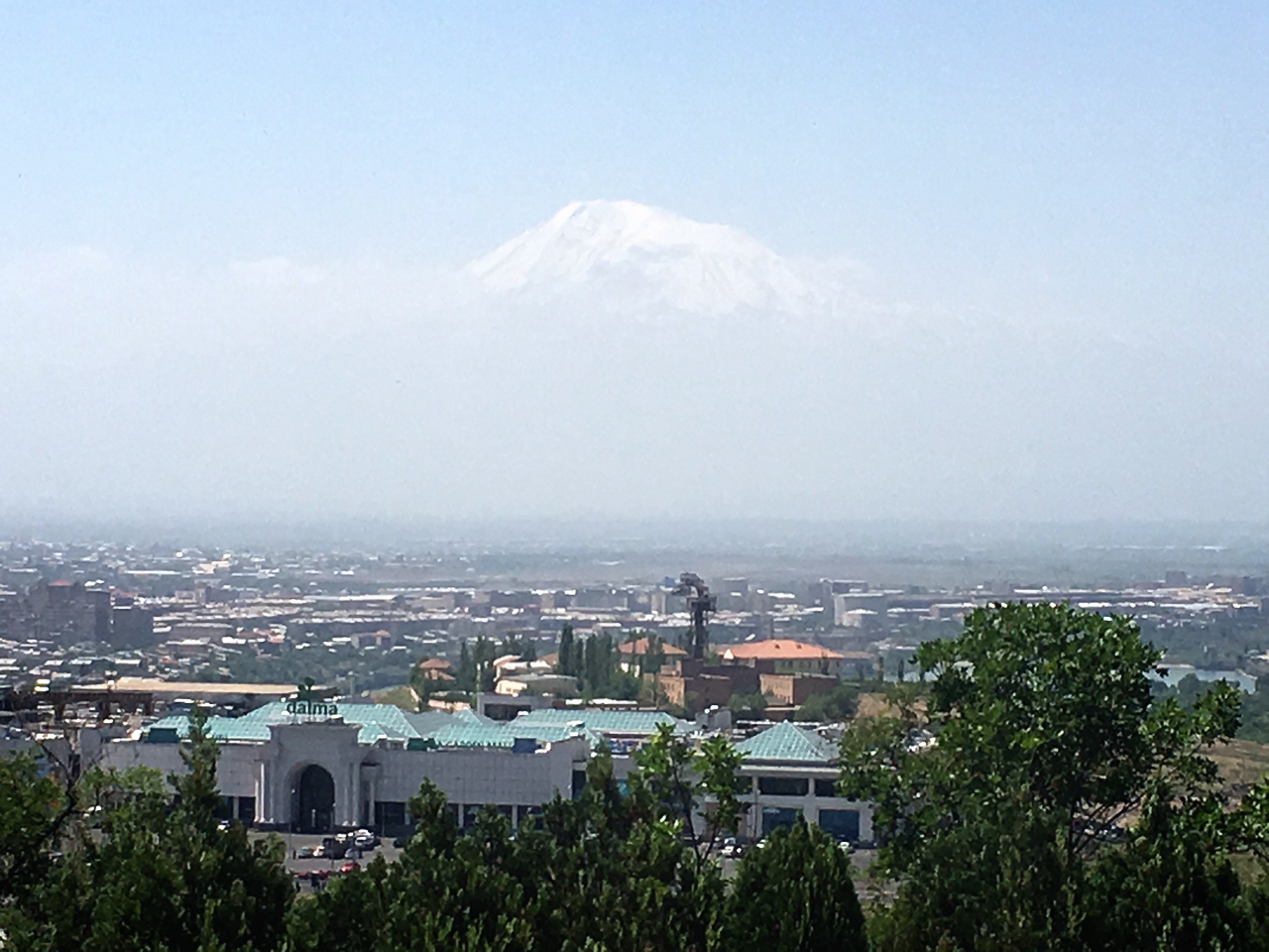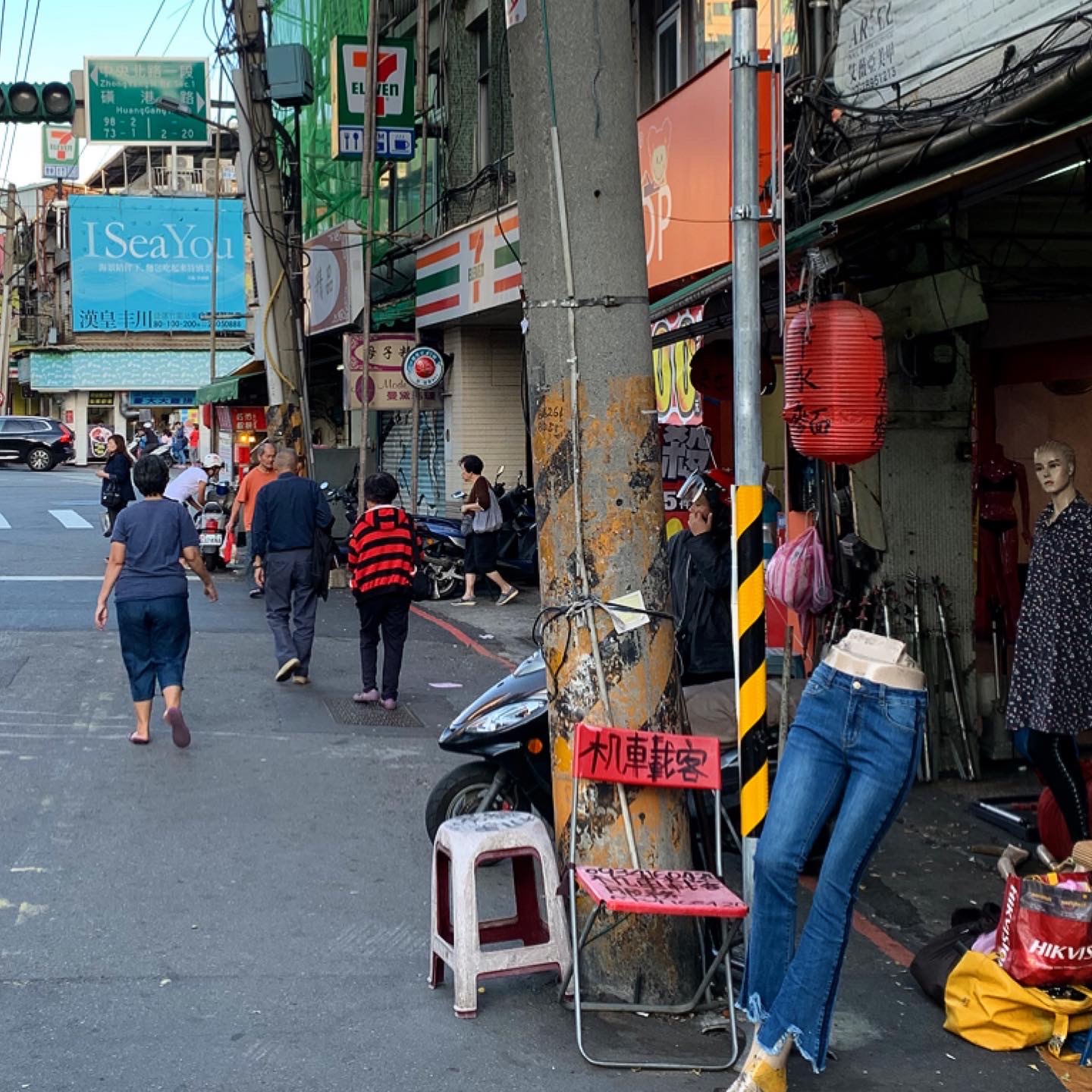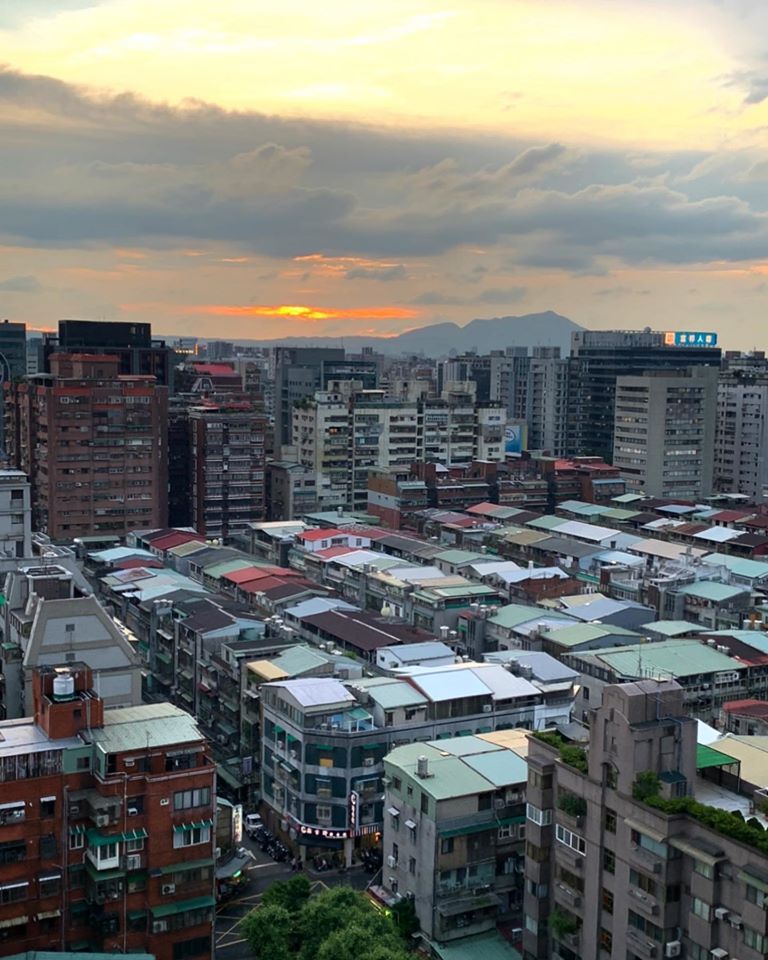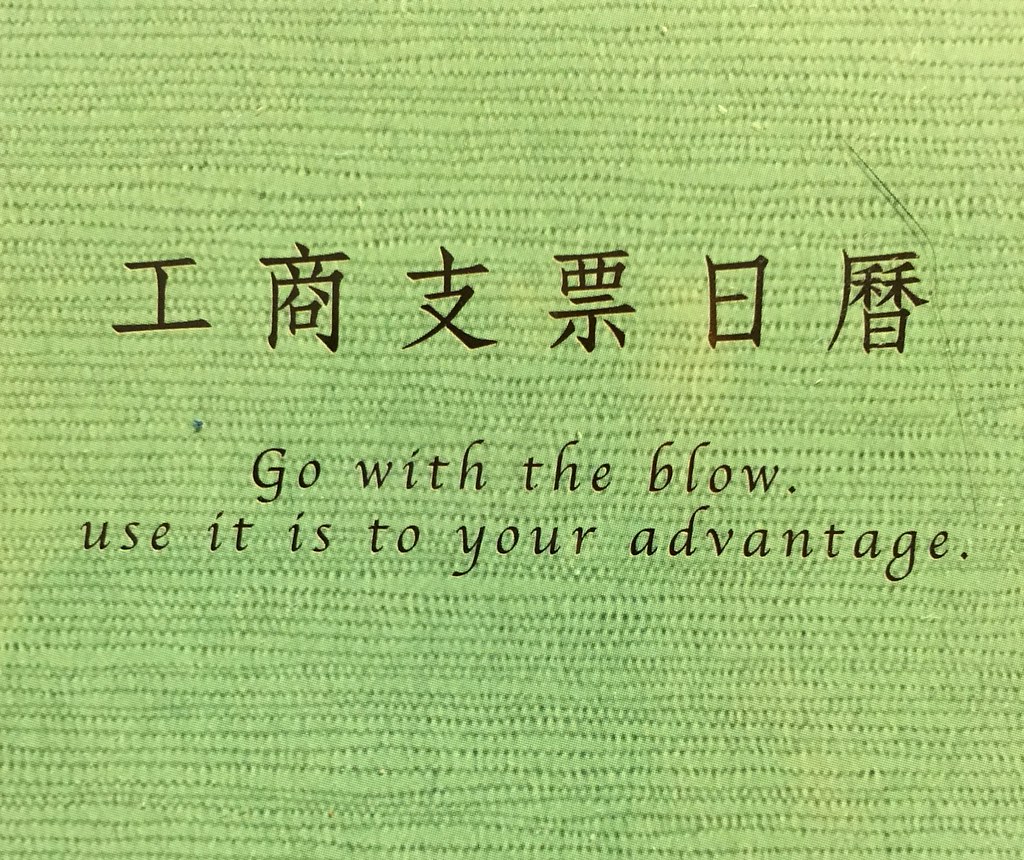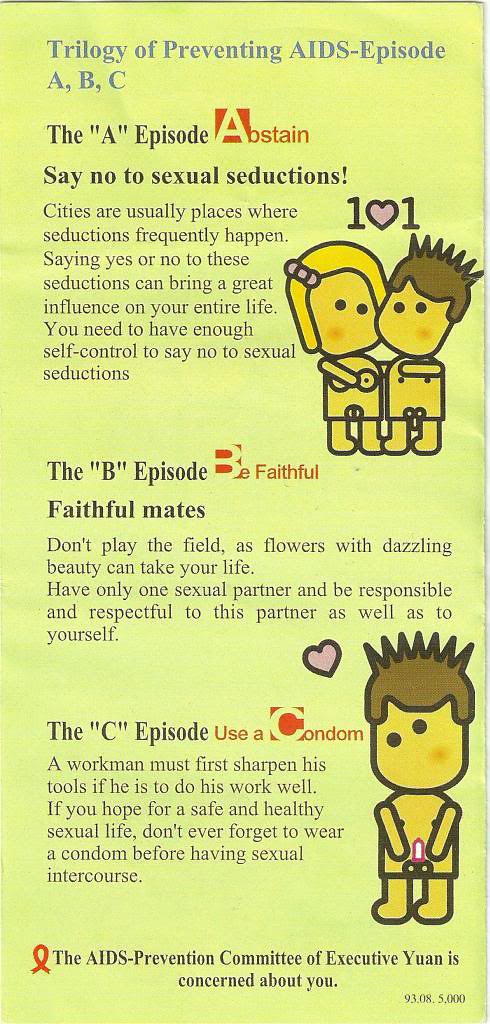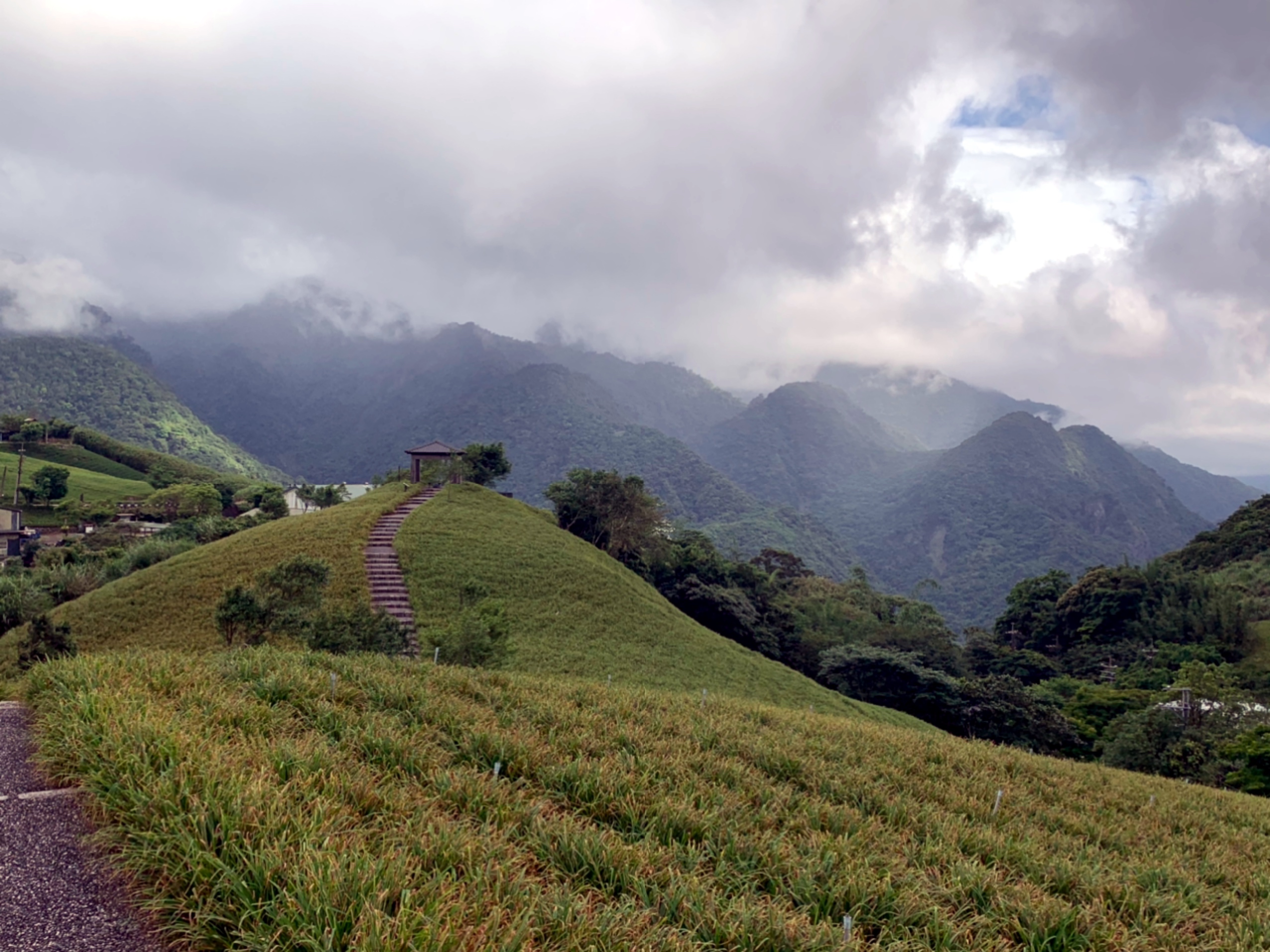
Just a travel photo of a hilly path on Liushidan Mountain
My Taiwanese students, trainees and friends seem to be handling Taiwan's new reality pretty well. "We'll get through this!" "Safety first!" "We can flatten the curve together!" "We'll do what it takes to fix this problem and get back to normal!"
Okay, they don't sound that jingoistic, but there's more or less a spirit of cooperation and belief that we can handle what's coming. They're all staying home, and we are too -- I venture out once a day to get some sunshine, do electro-therapy on my back and buy fresh vegetables. The work I still have is online.
Contrast that to the news, which makes it sound like Taiwan has been botching it all along, their epidemic prevention strategy was never as good as the world believed it was, and they made so many mistakes that now the house is on fire and the roof is caving in.
Many of these articles are pretty bad (sorry Bloomberg and BBC, but they are). They twist Taiwan's difficulty in getting vaccines as some sort of complacency on the government's part, rather than international issues of vaccine hoarding compounded by China's alleged efforts to stymie Taiwan's acquisition of vaccines while bloviating that they could have bought Chinese vaccines this whole time (not that anyone would be willing to take them, and frankly I'd be surprised if they didn't just send Taiwan sugar water).
I don't recommend you actually click that Global Times link, by the way. It's a train wreck. They always are.
Many reports spin out one big mistake -- allowing unvaccinated pilots shortened quarantine and not paying enough attention to hotel safety protocol -- and make it sound like the country's pandemic prevention strategy was riddled with holes. They throw around the word "complacent", but most people were reacting naturally to the low threat level that existed in Taiwan for months. This is normal human behavior.
The pilots who caused the outbreak were not complacent so much as deeply selfish. The government did attempt to get as many people vaccinated as possible by opening up the self-pay program, although perhaps those eligible for the free vaccine should have taken the offer more seriously.
On top of that, they pile on Taiwan because their excellent defense, which kept the country safe for over a year, faltered slightly after holding the line for so long. And why did we have to hold that line for so long? Because the rest of the world couldn't get its shit together.
So it's not that the government didn't make a mistake. They did. But in every other respect they've been doing an amazing job and the news coverage making it sound otherwise is simply not fair. I suspect there's a smidge of schadenfreude, where the rest of the world might be feeling like ah, so now you finally have to experience what we've been going through for the past year. Except not, because although some people are more locked down than others, we're not actually in a lockdown.
And yes, the threat level has changed. We should be careful, but please, don't freak out.
Certainly you should stay home as much as possible, mask up when you do need to go out and wash and sanitize frequently.
Still, don't freak out. I don't mean "don't feel anxiety", I feel it every day. I take medication for it! I mean don't freak out. Don't let headlines that make it sound like TAIWAN HAS FALLEN scare you; they're hyperbolic. We are not going to resort to a zombie apocalypse in which we must run each other down with souped-up scooters to survive.
I want to point out some data points that I hope will calm everyone down.
As of the time of writing, our new daily new reported cases went up terrifyingly quickly over the course of a week, but then flattened out somewhere in the 200s, down from a high of 333 new reports in one day just a few days ago. Note that these are not new daily infections but infections we've found. I won't try to interpret this, I'll just point out that I personally expected a week of much more quickly escalating numbers of daily reported cases. This is pretty acceptable news, relatively speaking. The CECC has also reported that they do not anticipate needing to go to Level 4 (a real lockdown).
What I'm trying to say is, the growth is not as terrifying as it could have been. It's a good reason to stay home and take extra precautions, but not a good reason to lose your cool. It's even a good reason to prepare just in case there's a Level 4 lockdown, but preparation doesn't mean panicking.
Here's the second reason not to freak out: we know everything the world didn't know a year ago. We know masks work. We know staying in place works. We know sanitizing and contact tracing works. The government hasn't been perfect about this (I don't think those acrylic table separators in restaurants do any good at all) but they have a system for when to implement what protocols, and mostly the decisions seem to be swift and based on good science. We're in the best hands we could possibly be in. No government is perfect, but there is no government I trust to handle this more than Taiwan's.
Although I've heard instances of people not wearing masks, not using sanitizer and not social distancing when outside, I also do believe that in general Taiwanese citizens are more likely to do what the government asks. Not because of Confucius or whatever, but because they've seen what happens when you don't, and most of what we're being asked to do makes sense.
A third reason: compare it to what's happening in the US.
I wrote this post a few days ago, so my data is a few days out of date, but I think the overall point is the same.
News from my in-laws is that Maine is starting to open up. Restaurants are re-opening, people are visiting each other, and mask mandates are being loosened, often in very unclear ways. For example, the rule is supposed to be that vaccinated people can take off their masks in some situations, but there is no clear way to check who is actually vaccinated and this is often being left up to individual businesses, who have an incentive not to annoy or turn away customers.
And yet, on May 14th, Maine had more overall daily reported cases (278) than Taipei did when it hit 188 the next day. Maine has a total population of about 1.3 million -- that's half the population of Taipei City alone. One county in Florida had more daily cases on the 14th than Taiwan's terrifying current peak of 333, but they're opening up too. (Florida's overall population -- not just that one county -- is a few million lower than Taiwan's.)
More new cases, fewer people, and they're opening up -- not locking down.
I don't think this is smart, and I don't think Taiwan should follow their lead, I'm just pointing out that Taiwan, with a dense population equivalent to that of Australia, is escalating its response quickly to a number of cases that, per capita, is still lower than what the US sees as a harbinger of better days ahead.
This means we're taking the threat seriously. That's a good thing, and it probably means we'll defeat it. The US certainly didn't do that in the early days, and yet Taiwanese are being called "complacent"? Come on.
Finally, we will soon have something the rest of the world did not have when this began: vaccines. Granted, they're not here yet. And yes, the vaccine rollout program has hit some bumps, many of them due to the overall lack of threat until very recently -- but we should be on track by July. So, there is at least the hope of a clear endpoint, a goal toward which we can focus our outbreak containment efforts. We may be in this for awhile, but at least there's a clear way out that we can measure in months, not years.
I won't say we have nothing to worry about. Anxiety is normal. I'm frustrated too. I'm angry at the selfishness of the pilots, and angry that they were not mandated to be vaccinated before they could be approved for shortened quarantine. I'm angry that the international media is treating Taiwan's situation like it's apocalyptic when frankly, it's all relative: the US went through an actual apocalypse, so several hundred cases a day in their state or county is an improvement. You're still probably safer in Taiwan. I'm slightly worried, because I've lost a lot of hours and my summer teacher training schedule is in jeopardy (we'll make enough to get through and are grateful for that, but certainly it'll be tighter than usual in the Lao Ren Cha household). Taiwan is just now figuring out how to improve its long-term epidemic prevention strategy, and there will be bumps.
By all means, of course, if you're a worker who's seen their hours shrivel or feel like the government is just telling you to figure out an impossible work/childcare situation, complain loudly and push for improvements.
We can get through this, and the experts guiding us have done a good job so far. We're doing more to contain the spread than the US is while their daily caseload is still higher than ours. With some exceptions, people are taking it seriously.
So be prepared, but don't freak out.





